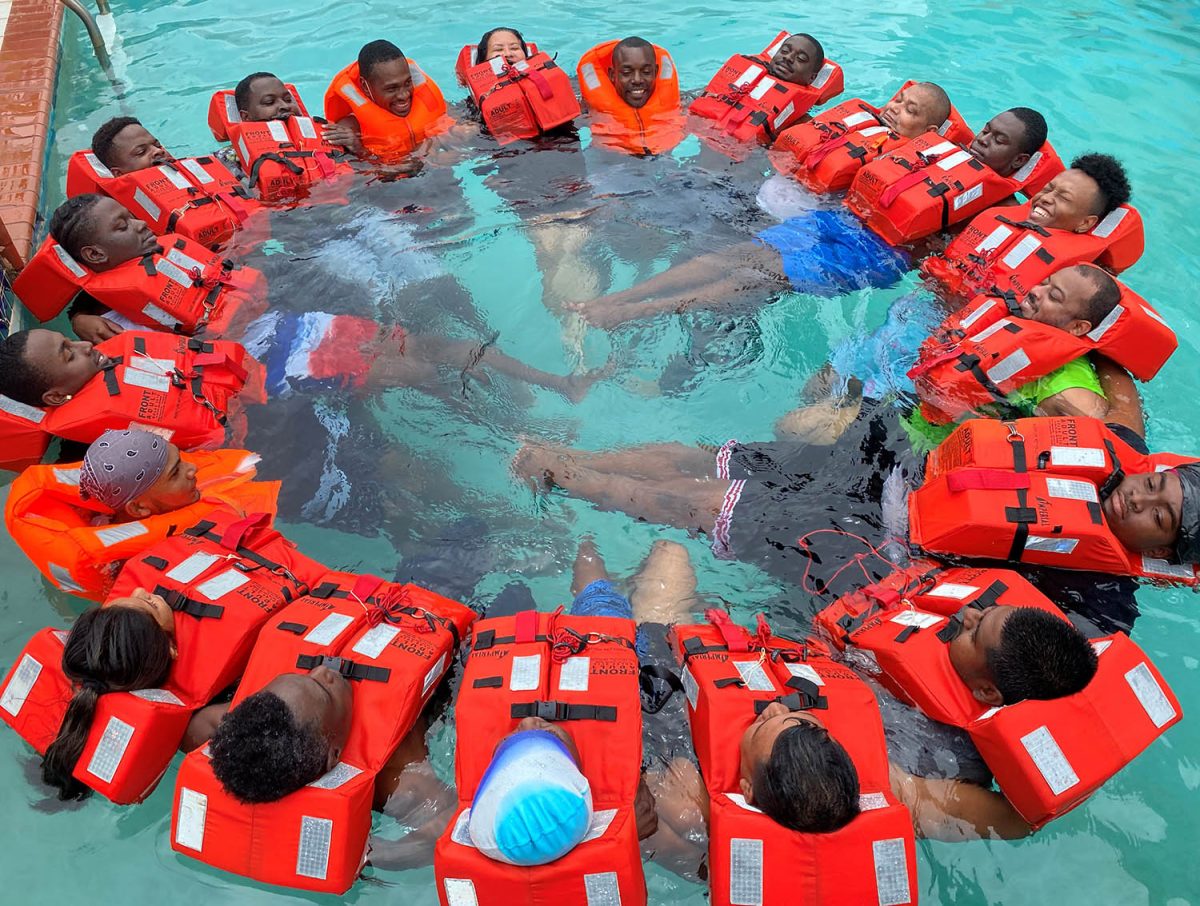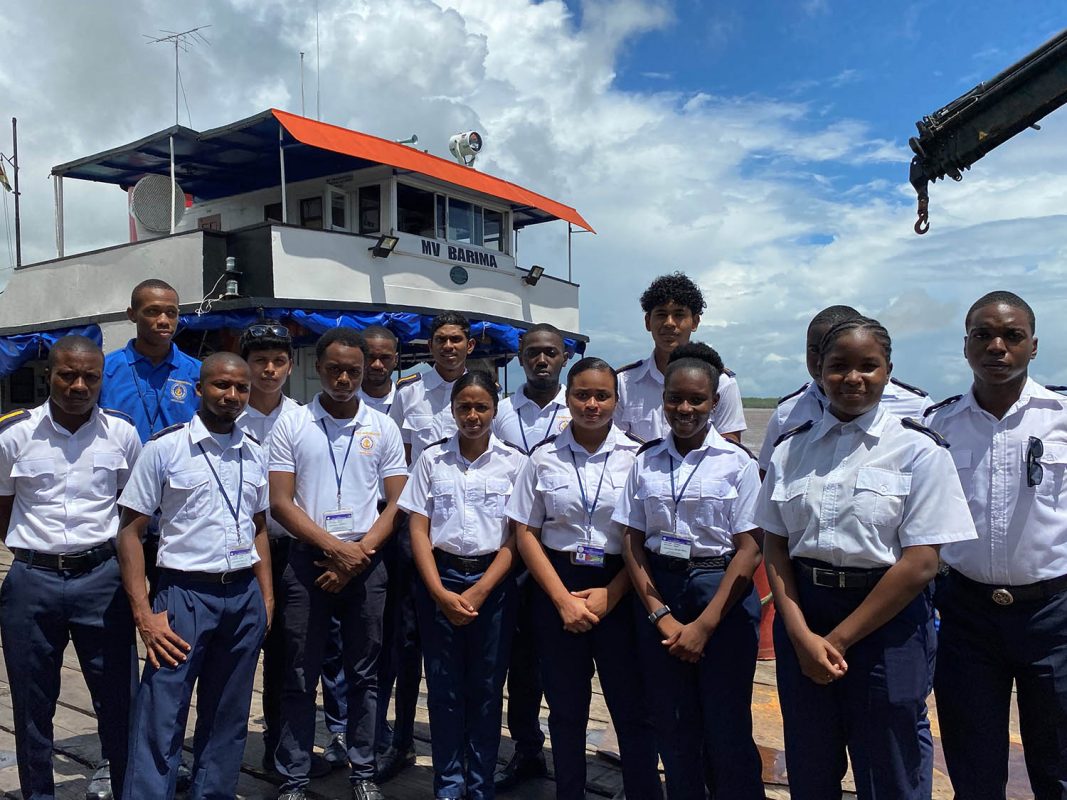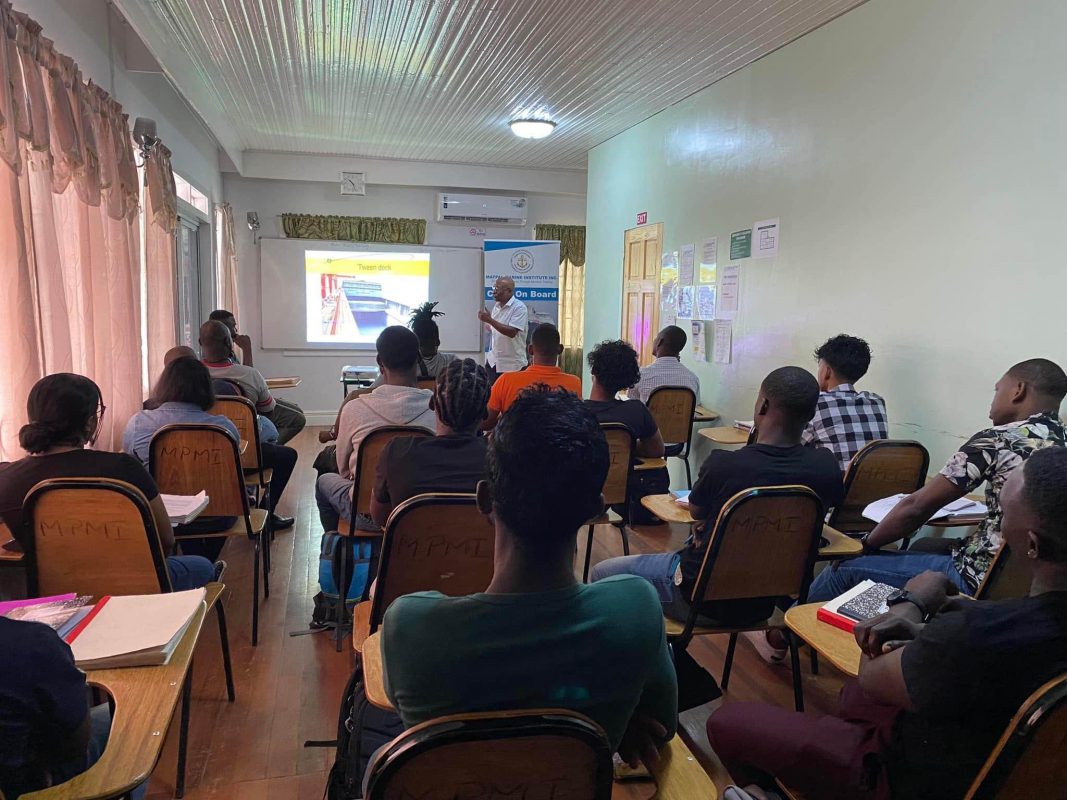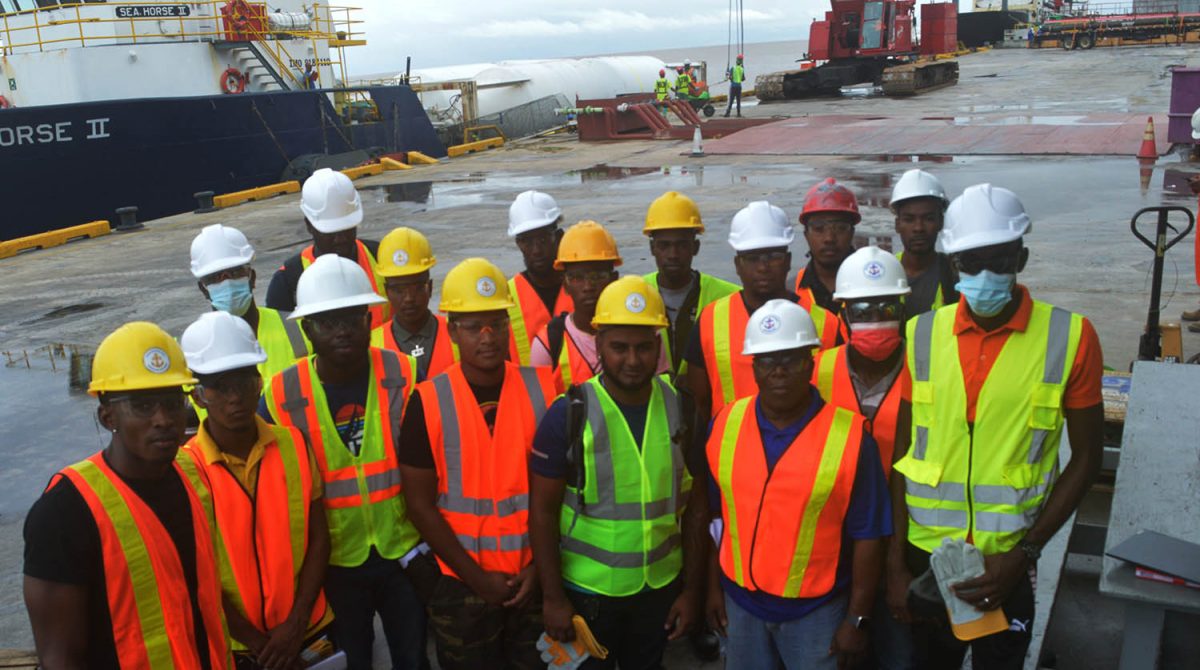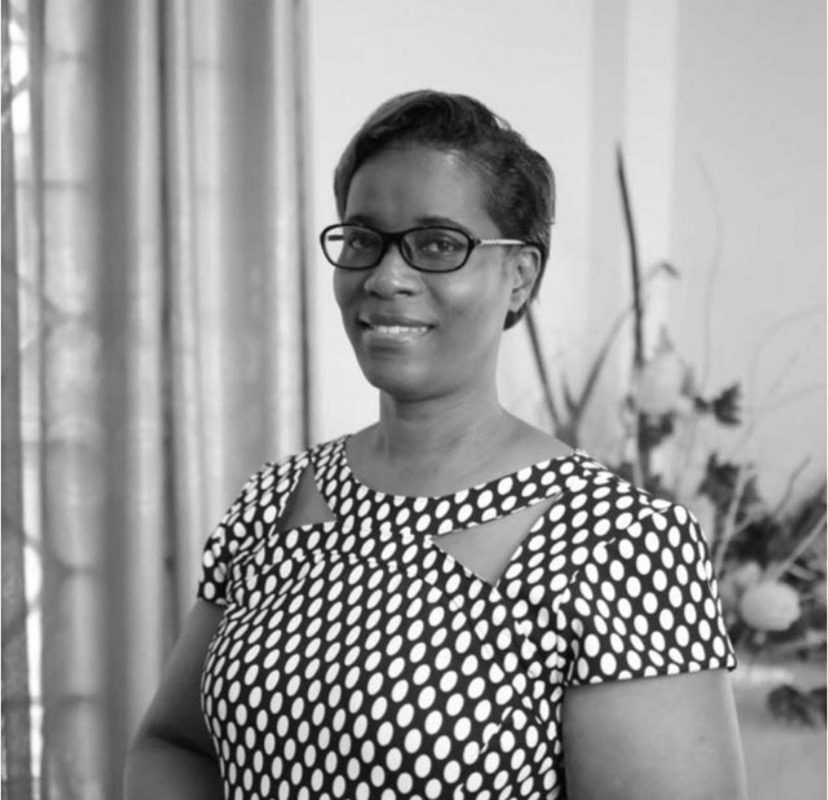Twenty-three years ago two sailors came together and started a business which essentially focused on transmitting the training they received overseas to better prepare those entering the maritime industry. Today that business has blossomed into an all-women controlled one that has tapped into preparing men and women for the oil and gas industry.
At the helm of MATPAL Marine Institute Inc is Coleen Abrams, who in an interview with this newspaper not only spoke of the success of the institute which has trained some 6,000 people over the years, but also about the tragedy that eventually catapulted her to becoming the Chief Executive Officer of the company
She described becoming involved in the maritime industry as a paradigm shift which happened when she became a widow at the age of 32 with three young children.
MATPAL became a reality through the actions of Gary Palmer and Orin Mattis on October 5th 1999 and then the school was located on the Railway Embankment, Lamaha Street.
As explained by Abrams, Palmer – who was her then husband – and Mattis took the plunge at a time when there was not much going on in the maritime industry. The journey has been enriching as not only has the industry grown, but there is now the oil and gas industry which would not have been thought about back then.
According to Abrams, when the two ship officers started the company, their aim was “to allow for persons to experience what they had experienced as they would have been trained out of Guyana and the benefit of that training would have impacted them so much they were determined to let Guyanese benefit from their knowledge, expertise and experience”.
They were training mainly for the local industry, many became so empowered that they were able to gain employment regionally.
In 2005, Palmer died tragically in an accident along the Linden/Soesdyke Highway and Abrams’ life as she knew it changed forever. At the time she was living in St Lucia with their three young children, as she was employed as lecturer in computer systems engineering at a college there. “For me it was a paradigm shift because at his death I had to uproot, leave what I was doing there and come back to Guyana to take over the running of the MATPAL Marine Institute…,” she explained.
She recalled after her then husband’s death, Mattis left the business and migrated.
Asked what prompted her to make that shift, Abrams said at the time she saw it as a legacy for her children; today their son is a ship’s officer in the oil and gas industry.
In 2009, she remarried to another ship’s officer, chief engineer Ryan Abrams, who has been pivotal in assisting with the work at MATPAL. A few years ago he was lecturing at the institute, but later took up other roles. Today he is Managing Director of the institute’s affiliate company, MATPAL Crew Management (MCN) which he started in 2017.
The institute has six lecturers, five men and one woman, who are all experienced; they have in excess of 40 to 50 years of experience. All of the administrative staff at MATPAL are women and Abrams said while it was not strategic, it is now an aspect of which she is extremely proud. The Lamaha Gardens institute has seven women in its employ.
Not being so involved in the institute for the first years, meant that Abrams had a lot to learn especially because it was a field where she was not technically inclined.
“But I was thrust into the position and I rose to the occasion. I came and of course for the last 18 years this is where I have been. Over the years I have developed a passion for what is being done in the maritime industry,” she shared.
Training
She explained that training for the institute commenced under what was then the Caribbean Maritime Institute, now known as the Caribbean Maritime University of Jamaica. Over the years, MATPAL has sought partnerships with other training institutions such as Panama Maritime Training Services, through which the Guyanese certification is internationally recognised.
Over the years, the institute has offered training at all levels, whether it is to become an ordinary sailor or the cadet programme that targets specifically the oil and gas sector.
“We take persons from having nothing, as long as they have an interest and an attitude and a passion to making seamanship a career, and … we move them through the ladder of training, certification and experience and that is how they are able to move from where they would have started their careers all through to the level of an officer,” Abrams explained in the interview.
She boasted that over the 23 years they have trained in excess of 6,000 men and women. On average, about 20 to 22 people are trained at a time and there are some courses that are conducted twice a month. The popular courses are the basic ship security, safety and awareness and training to work on the tanker vessels that bring oil to Guyana. While these vessels are internationally registered, there are quite a number of Guyanese working on board who were trained at MATPAL.
The institute’s signature programme is the cadet marine programme and to date they have been able to train about 40 people between the ages of 17 and 25. Cadets are those who have graduated high school with five or more passes at the Caribbean Secondary Education Certificate examination. Many work in the oil and gas sector or in the maritime industry locally or overseas.
Strategically, MATPAL has been training to fill the needs of the oil and gas industry especially towards building local content “so that there is a nice transfer of skills from the expats to young Guyanese”, Abrams said. She explained that the four-year cadet programme has already yielded marine deck officers and officers in charge of the engine room who are working on vessels in the oil and gas sector.
Compliance and standardisation
Abrams recalled that when MATPAL started oil exploitation was not a thought. In 2015, when ExxonMobil came to Guyana, while they were not cognisant of the impact the industry would have had on the institute, they wanted to be a part of it.
In that year, she said, they knew they had to develop competencies to meet the needs of the new industry, which involved the international standards of Exxon and other tier one contractors. In this light they sought to have the International Organisation for Standardisation (ISO) 9001 certification which is recognised by all companies in the industry. They partnered with Global Compliance Services, as well as the centre for local business development to get the compliance to continue to function and carry the training offered to the level and standard of the oil and gas industry.
Abrams shared that they reached out to Exxon and asked how they could best satisfy the needs of the company. Exxon pointed the institute to other companies with which it collaborated and thus the cadet programme was developed.
Since the cadet programme was launched in 2016, Abrams shared, they have had 15 cadets enrolled. They graduated four years later and four are now employed within the oil and gas industry as third deck officers. The programme involves 12 to 18 months in class training and the remaining time is onboard. “It is a nice transition for them. They know they come here for training and they know they are employed after they complete,” she said.
In 2017, they had another seven cadets and of that number five are on their way to becoming employed in the oil and gas industry. In 2020 there were 18 cadets and with COVID-19, she said, they shifted the training to an online platform and got them through theory and then onboard for internship.
“The success story has been continuing that way. Of course, in 2022, we had another influx of cadets, this time 15 who would have recently finished their in-class training in November of last year and they are actually on the vessels…,” Abrams said.
The institute is now accepting applicants for the 2023 training which will commence in March. The closing date for applications is January 31. They are looking for a maximum of 20 cadets both for the deck and engine room as they have recognised the need for both.
Apart from the cadet programme, Abrams said, they have other programmes that people can tap into and get certified and ready to enter the maritime and oil and gas industries in positions like ordinary sailors, deckhands and riggers.
“It shouldn’t be seen as because you do not have CXC subjects you are not eligible to work within the industry because there is so much offered. And what you may also find, while the academics are necessary and they amount to a whole lot, … technical skills are very much needed. And there are also persons needed at the support level and those are persons who do not have the education or technical training…,”Abrams explained.
The training is certified under the International Maritime Certification. The shorter programmes range from a period of nine days to three months and trainees can move from one level to the other.
Women are being trained in all of the programmes offered. Abrams said it is encouraging that all of the tier one contractors they have engaged with have women officers; this serves as an encouragement for women to join the industry.
The institute also offers training for speedboat operators and fisher-folk to allow them to safely use the waterways.
For the cadet programme, Abrams said, they have been able to secure scholarships from companies in the oil and gas industry. Tullow Oil Guyana has been very instrumental in this aspect. The American Caribbean Maritime Foundation has also been offering scholarships and has promised to offer more.
The future
As they look to the future, Abrams said, they are seeking to be a part of the GOAL scholarship programme offered by the government so that more people can benefit. The institute intends to submit a proposal in an effort to make this a reality. They have also had discussions with the Board of Industrial Training managed by the Ministry of Labour.
While the industry has become more competitive, Abrams said, they are banking on the years of experience the institute has under its belt to give them an edge. She believes there is nothing that can beat experience. She hopes that the experience would transcend to more benefits and they can take advantage of opportunities and offer even more training such as the helicopter underwater escape training, welding, fabrication and diving.
“Our projection is that we continue to grow with the assistance of those who appreciate what we do…,” she said.
At present, MATPAL’s affiliate MCN is crewing for a large company in the United Kingdom – Pritchard Gordon Tankers (PGT) – and has assisted in preparing 125 Guyanese to be employed on the 10 tanker vessels the company has. They not only train them but manage their crewing portfolios. She hopes that is something they can be engaged to do more of. The institute also wants to partner with other similar companies in the industry or about to enter as she believes that in partnership there would be more to be achieved as an expanded menu of training and certification can be offered.
Being part of the industry for the past 18 years, Abrams said she is interested in sharing her journey to let women know there is a place for them wherever they set their eyes; once they are determined and have a passion then the sky’s the limit.
“During the dry days MATPAL was here. We stood our ground. We sacrificed and we did what we had to do and therefore now that the grounds are more hallowed as we say, now that it is more ripening and more opportunities are being presented then MATPAL intends to remain for the long haul,” Abrams pledged.
